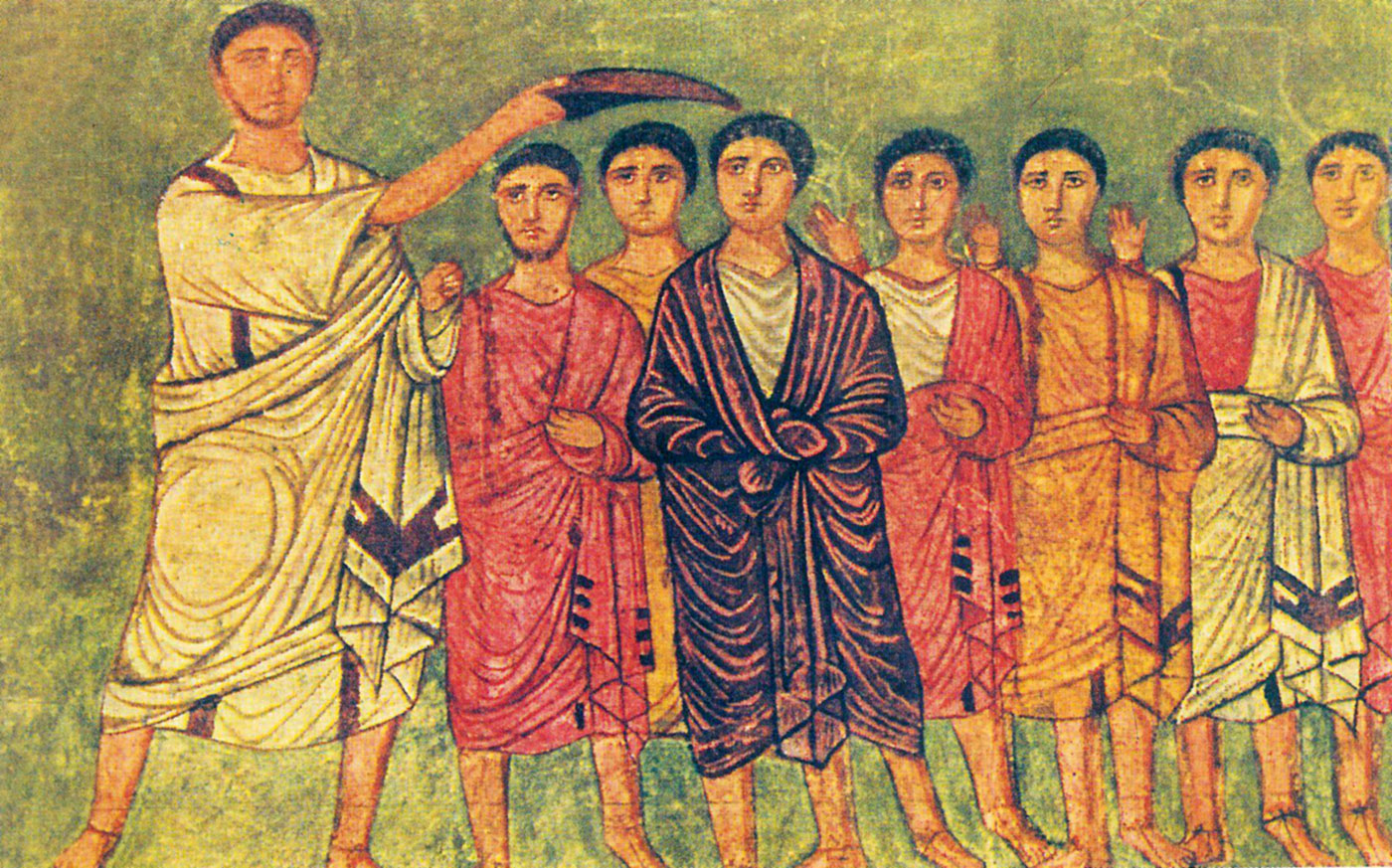Humans don’t see as God
sees. Yet. As we put our first reading and gospel together, I think that’s what
we’re left with. We have the negative confession: the humans don’t see as God
sees. We have the good news that God sees in a world-changing way. And we have
what excites us to hope: that God will transform how we see.
Let’s start
with God. In our first reading, we have the definitive statement that humans
don’t see as God sees, but before we have that negative, we actually have a
positive statement. You’d probably didn’t hear it (unless you happened to be
reading along during the reading in your Hebrew Bible), but when our
translation says, “I am sending you to Jesse of Bethlehem, for I have chosen
my king from among his sons,” the word ‘chosen’ is actually ‘seen.’ God has
seen David. And while our translation doesn’t pick the first English word in
the Hebrew dictionary entry for רהע it surely gets the sense right. For God to see David is for God
to choose David, for God to choose David to receive the closeness of his very
Spirit through Samuel’s anointing, to choose him for a definite form of service
to the holy people of God, to equip him and accompany him.
Some other English translations use the ‘provide’ there. “I have provided
(for Israel) a king from among Jesse’s sons.” That has the advantage of making
a neat pun that language geeks like me could enjoy, because the English word ‘provide’
is made up of two Latin words: pro + video, “see on behalf on.” In
English, we make a similar use of the verb ‘see’ when we say, “I’ll see to it.”
For God to see David, is for God to provide, not to give David gifts for his
own pleasure, to hoard; no, for God to see David is to enrich him that he might
be gift for others. In his case, it’s to be king.
Friends, God sees us all. In baptism, we have each been chosen (or we will
each be chosen, N.), and in confirmation, in that anointing just like David’s,
that L. and N. are preparing for, along with some of the young people of
this parish who’ll receive that sacrament on Tuesday, that chosen-ness is strengthened,
the gift of the Spirit comes closer still, the call is sounded more keenly.
Yes, we have been seen by God, just as David was. And that’s beautiful, and
amazing, and incredibly scary.
It’s scary because we know that we don’t see as God sees. When we see, we
don’t normally choose to commit ourselves to that person, to love that person,
to give that person the gifts they need to serve others, to support them in
their journey to full human flourishing. And we’re not God; we can’t do all God
does when God sees. But, the Spirit is urging to move, little by little in how
we see. Certainly, we’re called to move away from manipulative, self-serving
seeing. Viewing pornography would be one of the most galling forms of this, but
so is seeking to learn about someone else’s life in gossip, seeing someone only
as a source of intrigue or titillation.
There’s the form of seeing Jesus’ disciples engage in at the start of the
gospel, they see a blind man and assume his disability has been caused by
someone’s sin. They’re the good guys, the people like us, trying to follow
Jesus. But we have an advantage over them, we’ve heard, at least once every
three years, this answer of Jesus’ that physical impairments aren’t explained
by sin. John Hull, a scholar of religion who went blind as an adult, tells a
story of once when he was in a taxi and the driver, on learning he was blind
and a Christian, asked what he’d done that God would make him blind. (Actually,
he tells many such stories, just only one happens to be in a taxi.) I read online
this week of a woman who had lost 100 lbs in the last year, but was still obese.
As a rare treat, she got an ice cream from DQ on free cone day and as she was
driving away, heard someone shout out an anti-fat slur. Is there an assumption
there that ‘seeing someone’ means seeing how to shame them? I talked to a young
man last year who was muscular and African American and he told me he was going
to stop lifting in the hopes he’d get smaller, and people wouldn’t be scared of
him and he might stay safe. What a sinful form of seeing he knew.
God doesn’t see like that. Not like any of that. That’s got to be the start
of our response to the reality of sinful human seeing: the divine no to sin,
and the divine yes to seeing us in that divine, loving manner, that accompanies
us, gifts us and provides us as gift to the world. We are seen. We are seen by
God. And that divine seeing means that God won’t leave us to see as we see now.
Jesus has come as light of the world, and it’s in that new light, the light of
a love more powerful than death, that we can all start to learn to see in that
way that God sees. If Jesus can transform one person’s physical sight, how much
more can he transform our hearts?

No comments:
Post a Comment